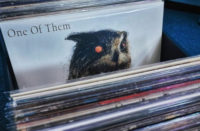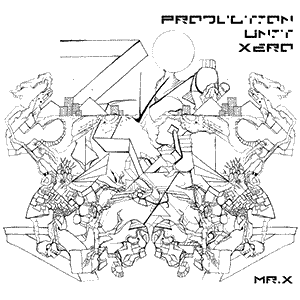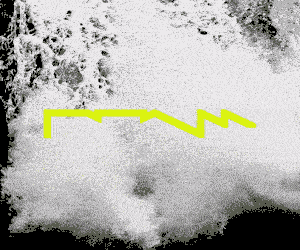::..:::…..:..::….:::::..:::..:::::::……:::…::.:::….::::..:..:::…::…….:::::
The record industry is experiencing a body blow to its profits as file sharing continues to grow in popularity. But despite the dire warnings coming from the industry, this actually spells an opportunity for people to reclaim music as a cultural form and art rather than a commodity available only to the rich.
Sales of recorded music in the United States have fallen by almost a half, making the previous warnings of the music industry – that tape recordings would “kill the industry” and other such nonsense – pale into insignificance in comparison to the threat posed by shared music, both from file sharing networks, and by people copying CD’s for each other. The opening shot in the war against sharing appeared to be an attack on Napster by Metallica, but in reality, the music industry has been awakened to the growth of so-called piracy for years.
First it attempted to introduce copy-protection on CDs themselves. Early versions of the technology rendered albums unplayable in many CD players or computers, even breaking some machines. Several versions of copy-protection technology proved to be easily broken, some even using tools as low-tech as a felt-tip pen. Record label concerns about universal playability and consumer reaction have helped slow the CDs’ pace to market substantially, particularly in North America, but in Europe 100s of millions of protected CDs are now flooding the market. “People are getting used to the idea,” says Bill Krepick, Chief Executive of Macrovision – a technology protection company. “I think the sense is that consumers in those countries tend to be a little less vocal than American consumers.” Protected-CDs are also common in South America, where a car driver in Brazil has successfully sued EMI because CDs he bought wouldn’t work in his car. Campaigns have already begun against the corrupt audio disks, for example on The Campaign for Digital Rights, and the result of lobbying or technological response by buyers that crack the protected CDs could make it impossible for CD Protected disks to confer any protection on the music industry.
But even if the tide can be stemmed against CD copying, this does nothing to grapple with the widespread availability of music files already on the net. Startled by the rise of file sharing, the Recording Industry of America Association (RIAA) has taken the next step in an offensive against sharing music: a controversial campaign to track down and sue Americans who share copyright music files. It was initially thought that those who downloaded and shared the most were to be targeted by these lawsuits, but the case of Leah Pate – a 23-year-old Californian student – suggests otherwise. In fact, those included in the initial wave of lawsuits have included people who have downloaded only a few songs, grandparents who’s computers have been used by their grandchildren to download songs, and even children themselves, such as Brianna LaHara, the a 12-year-old Manhattan girl! The RIAA is demanding that Internet providers track individuals identified as pirates and has drafted a bill with its capitalist comrades in government that proposes that sharing just a single file on a peer-to-peer network would land a person in prison for five years, and impose a fine of $250,000.
Whether this approach will work for the recording industry is yet to be seen. Political pressure has been voiced by Senator Norm Coleman, a Minnesota Republican who recently expressed concerns about what he called a shotgun approach by the Recording Industry Association of America in protecting its copyrights. In addition to political resistance to the RIAA, the file sharing networks are also likely to attempt to protect their users for the simple reason that their revenue and lifeblood depends upon them. Hence some file sharing networks are already attempting to prevent IRAA (and other potential anti-pirates) from scanning for users of shared music . It doesn’t seem unreasonable to expect forms of encryption such as PGP to be applied to the file sharing programs and networks, making it impossible to track down the sharers of music. With one estimate by Webnoize estimated that the number of downloads exceeds by five times the total number of songs on an average CD sold in the US and one and a half times worldwide sales, the RIAA and the recording industry has its work cut out.
Stan Liebowitz, a professor of managerial economics at the University of Texas at Dallas claims that the damage to the music industry is negligible at the moment anyway, but that it will start hitting CD sales in the foreseeable future. This would suggest the RIAA is taking preventative action at the moment to scare users off from sharing. Liebowitz states that one solution that the recording industry might wish to develop is Digital Rights Management, a system that will force users to pay for any music they download using encryption. This pernicious system is likely to move from attempts to prevent music piracy, to providing “a technological barrier to breaches of commercial confidentiality, to beef up privacy and to protect against other types intellectual property infringement” – self-destructing files, more privatization of knowledge and greater profits for the few. Though the legal implications of files that self-destruct for the purposes of profit are being voiced, this form of protection is looking as the most likely contender for preventing music piracy.
But is file sharing really the catastrophe for the consumer that the music corporations preach, or really a grassroots rebellion against high prices, the mediocrity of mass-produced music by corporations, and the principle of ownership of art and cultural material? The fact that five times as many songs are traded as sold on CD in the United States implies that people weren’t having access to the amount of material they wanted. Perhaps the CDs were seen as too expensive, which would explain why CD prices are being slashed across the board to beef up sales: looked at in a purely capitalist sense, an example of consumer action against a commodity that’s overpriced?
The music industry sees file sharing as a threat to its interests; it clearly believes that if you can’t afford to listen to music then you shouldn’t be listening to it. The music industry is not interested in music per se, but in what makes the most profits. Record companies are years ahead in identifying threats to their industry. They are also usually years ahead in predicting market trends, or more accurately, creating market trends. The potential of file sharing to destroy their ability to do this, taking money out of the hands of the biggest labels and allowing everyone with a computer and internet connection to own vast record collections is the biggest threat the record industry has ever faced, and its one that’s not going away.
It’s not just that they lose the ability to create market trends at will, as obscure forms of music become more popular. And upstart bands that aren’t signed start receiving the attention they deserve. Its also that people will wake up to the fact that factory produced bands with the full economic backing of the record industry are probably not really music, just a manufactured consumerist commodity with a carefully marketed and packaged image. Even if people still like this form of music, the fact that they will be downloading it from the internet will remove the profit motive for producing these types of band in the first place; even worse, the artists involved won’t bother producing the music because they do it for the money – that would have dried up, not for the love of their art.
The grassroots rebellion against overpriced, manufactured rubbish sees the record industries fall from their several-decade-long period of increasing profit and power to find themselves as all capitalist industries do after over-expansion – on the decline. This attack on the centralization of power and economics in the music industry could see the demise of the largest labels, replaced by smaller, more specialized labels catering for more diverse tastes, paying a greater share of their profits to musicians of quality. More likely, the bigger record labels will adapt, sell off parts of their companies and try to beat the small labels at their own game. Artists are obviously going to be affected by this; the largest artists will be hurt. Bands producing music that is currently squeezed out by the global market will suddenly find themselves being heard by new and increased audiences allowing them to play live more. Unless capitalist society is replaced by a different economic system, people will continue to fail to have the proper time to listen to and create music. But the death – or at least amputation – of much of the global music industry’s power is a slap at least in the face to the McDonaldisation of culture brought about by neo-liberal capitalism and an expression of the reclamation of music as a cultural and artistic form to be shared by all, rather than being the preserve of the rich.
::..:::…..:..::….:::::..:::..:::::::……:::…::.:::….::::..:..:::…::…….:::::
Notes/Sources ::
::..:::…..:..::….:::::..:::..:::::::……:::…::.:::….::::..:..:::…::…….:::::
Read more:















